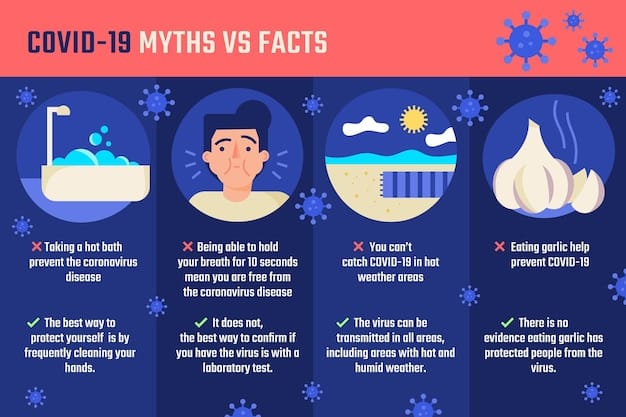Unlock Peak Performance: The Benefits of Cold Water Immersion for Athletes

The Benefits of Cold Water Immersion: A Guide for Athletes dives into how deliberate exposure to cold water can drastically enhance recovery, reduce inflammation, and improve overall athletic performance. This practice has quickly become a staple in elite training regimens.
Are you an athlete looking for a competitive edge? The Benefits of Cold Water Immersion: A Guide for Athletes explores a recovery technique that’s gaining popularity in the sports world. Discover how cold water immersion can help you recover faster and perform better.
Understanding the Science Behind Cold Water Immersion
Cold water immersion (CWI) involves submerging oneself in cold water, typically between 50-59°F (10-15°C), for a limited period. This practice triggers a cascade of physiological responses that can be particularly beneficial for athletes. Let’s delve into the science underpinning these benefits.
The Physiological Response to Cold
When the body is exposed to cold water, several immediate changes occur. Blood vessels constrict, reducing blood flow to the extremities. This is a protective mechanism to maintain core body temperature. Simultaneously, the cold stimulates the vagus nerve, influencing the parasympathetic nervous system, which promotes relaxation and recovery.
- Decreased Inflammation: Cold water immersion helps to reduce inflammation by constricting blood vessels and limiting the inflammatory response in muscles.
- Pain Reduction: The cold can act as an analgesic, decreasing nerve conduction velocity and reducing the perception of pain.
- Improved Blood Flow: After the initial constriction, blood vessels dilate, potentially enhancing blood flow and nutrient delivery to muscles.
In essence, cold water immersion leverages the body’s natural responses to cold to mitigate the negative effects of intense physical activity.

Boosting Recovery with Cold Water Immersion
One of the primary reasons athletes embrace cold water immersion is its ability to accelerate recovery. High-intensity training and competition cause microscopic muscle damage, leading to inflammation and delayed onset muscle soreness (DOMS). CWI can help alleviate these symptoms.
Reducing Muscle Soreness
DOMS can significantly impair an athlete’s ability to train effectively. The Benefits of Cold Water Immersion: A Guide for Athletes include reducing the intensity of DOMS by decreasing inflammation and muscle damage. This allows athletes to return to training sooner and perform at a higher level.
Many athletes find that regular cold water immersion sessions help them manage the physical demands of intense training schedules. The reduction in muscle soreness is often noticeable, leading to improved motivation and consistency.
Enhancing Athletic Performance Through CWI
Beyond recovery, cold water immersion may also have a direct impact on athletic performance. By reducing fatigue and improving overall well-being, CWI can contribute to enhanced training capacity and competitive readiness.
Mental Resilience and Focus
Enduring the discomfort of cold water immersion requires mental fortitude. Athletes who regularly practice CWI often report increased mental resilience and a greater ability to handle stress. The practice can serve as a form of mental training, fostering discipline and focus.
- Improved Mental Toughness: Overcoming the initial shock and discomfort of the cold builds mental strength.
- Enhanced Focus: The controlled environment of CWI encourages athletes to focus on their breath and body, promoting mindfulness.
- Reduced Anxiety: Activating the parasympathetic nervous system can help to lower anxiety levels.
Cold water immersion is not just about physical recovery; it’s also a tool for cultivating mental strength and focus, which are essential for athletic success.
Practical Guide to Cold Water Immersion for Athletes
To reap The Benefits of Cold Water Immersion: A Guide for Athletes, it’s essential to follow some guidelines to ensure safety and effectiveness. The following recommendations are designed to help athletes incorporate CWI into their training regimen.
Optimal Immersion Protocols
The most common protocol involves immersing oneself in water between 50-59°F (10-15°C) for 10-15 minutes. However, individual tolerance and specific training goals may necessitate adjustments. It’s advisable to start with shorter durations and gradually increase the immersion time as comfort levels improve.
It’s also important to consider the timing of CWI sessions. Many athletes find it most beneficial to immerse themselves in cold water within an hour after intense workouts or competitions. This helps to minimize inflammation and kick-start the recovery process.

Safety Considerations and Potential Risks
While cold water immersion offers numerous benefits, it’s important to be aware of potential risks and take necessary precautions. Individuals with certain medical conditions should consult with a healthcare professional before incorporating CWI into their routine.
Contraindications and Precautions
Cold water immersion is not suitable for everyone. Individuals with cardiovascular issues, such as heart disease or high blood pressure, should avoid CWI due to the increased strain on the cardiovascular system. Similarly, those with Raynaud’s phenomenon or cold allergies should exercise caution.
- Hypothermia: Prolonged exposure to cold water can lead to hypothermia, a dangerous condition characterized by a rapid drop in body temperature.
- Cardiovascular Strain: The constriction of blood vessels can increase blood pressure and place additional stress on the heart.
- Nerve Damage: In rare cases, prolonged or repeated exposure to cold can result in nerve damage.
It is generally advisable to have a spotter present during CWI sessions, particularly for beginners. This person can monitor for any adverse reactions and provide assistance if needed.
Integrating CWI into Your Training Regimen
Incorporating cold water immersion into your training routine requires careful planning and consideration. The key is to find a balance that maximizes the benefits while minimizing the risks.
Consider your overall training load and recovery needs. If you’re engaged in a high-intensity training program, you may benefit from more frequent CWI sessions. However, it’s important to listen to your body and adjust the frequency and duration accordingly. Always prioritize safety and comfort.
| Key Point | Brief Description |
|---|---|
| 🧊 Reduce Inflammation | Limits swelling and promotes faster muscle recovery. |
| 💪 Enhance Mental Resilience | Builds mental toughness through controlled exposure to cold. |
| 🩸 Improve Circulation | Boosts blood flow, aiding nutrient delivery to muscles. |
| ⏱️ Reduces DOMS | Decreases Delayed Onset Muscle Soreness after intense exercise. |
Frequently Asked Questions
Cold water immersion helps reduce inflammation, decrease muscle soreness, and improve mental resilience in athletes, leading to faster recovery and enhanced performance.
A typical cold water immersion session lasts 10-15 minutes at a temperature between 50-59°F (10-15°C). Adjust the duration based on your comfort and tolerance.
No, individuals with cardiovascular issues, Raynaud’s phenomenon, or cold allergies should consult a healthcare professional before trying cold water immersion.
The best time for cold water immersion is within one hour after an intense workout or competition to maximize recovery benefits.
Yes, enduring the discomfort of cold water immersion can improve mental toughness and focus, contributing to better overall athletic performance and stress management.
Conclusion
In summary, The Benefits of Cold Water Immersion: A Guide for Athletes are extensive, ranging from reduced inflammation and muscle soreness to improved mental resilience and enhanced performance. By following proper protocols and considering safety precautions, athletes can leverage this technique to optimize their training and recovery.





